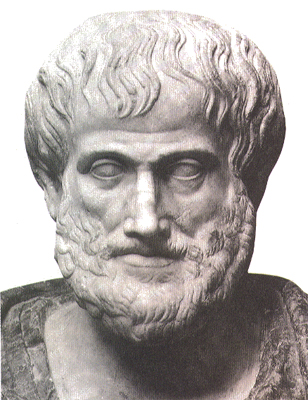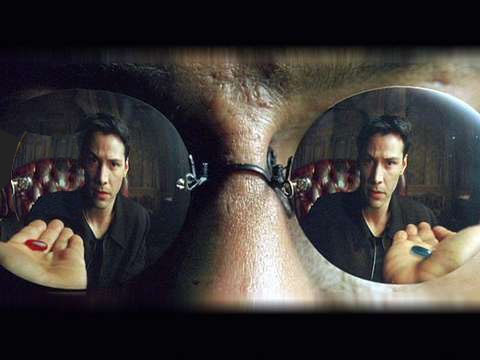No man's knowledge here can go beyond his experience.
John Locke (1632-1704)
Can you imagine plummeting from the sky at 300 km/hr? What would you experience? The wind tearing through your hair. Your friends screaming in your ears. And of course, the sight of the earth growing steadily closer would be a key component of the experience.
Rationalists might suggest you close your eyes and imagine the sensations, but can that really compare to actually experiencing it? As you will discover, empiricists argue a clear "no!"
1. And Now For Something Completely Different...
Consider this ancient Chinese proverb: 'Give a man a fish and you feed him for a day. Teach a man to fish and you feed him for a lifetime'.
So how do you teach a man to fish? Rationalists would, of course, argue that the man can simply close his eyes and rationalize his way toward understanding.
Empiricists, however, disagree. They would tell the man to go with someone who knows how to fish and practice the art.
After all, if you ask most people how they learn, they will probably tell you by experience. And this makes a lot of sense. Every day you go out into the world you are awash in sensations, some of which you attend to and some of which you do not. Nevertheless, when attended to, these sensations become experiences, and then, in turn, these experiences become knowledge. So, for empiricists, how you know something is through real-world experiences.
Key Empiricist Philosophers
Sophists Aristotle Aquinas Bacon Locke Berkeley Hume Russell
Please check these links and take a note or two about each - if you can find a direct quote, even better!
In addition, please look at pp. 209 - 213 to look specifically at what some of these philosophers said and thought.
Sophistry!
Nowadays, saying someone is using a sophist argument is an insult (go ahead, try it); it suggests that the speaker is using persuasive techniques, rather than sound arguments and evidence, to sway the listener. No doubt you've seen evidence of this in your classes when homework assignments lie forgotten at home...
However, the original sophists were among the first Western empiricists. They denied rationalist arguments in favour of concrete experiences. Of course, given their 'pay-for-say' outlook this is not surprising. After all, people have a much more emotional connection to experiences than to rationalized thought experiments.
If you want to learn more about the Sophists, click
here to read Plato's dialogue entitled "Sophist". Be forewarned, Plato was NOT a fan of the Sophists!
2. A Blank Slate
Perhaps you have heard of this term before. What do you think it means? Well, if you're an empiricist, it is a central cornerstone to your theory of knowledge. Let's consider some of the famous statements made about it:
 |
| Aristotle |
"What the mind thinks must be in it in the same sense as letters are on a tablet which bears no actual writing; this is just what happens in the case of the mind."
 |
| Aquinas |
"But the human intellect, which is the lowest in the order of intellects and the most removed from the perfection of the Divine intellect, is in potency with regard to things intelligible, and is at first "like a clean tablet on which nothing is written", as the Philosopher [Aristotle] says."
 |
| Locke |
"Men, barely by the use of their natural faculties, may attain to all the knowledge they have, without the help of any innate impressions, and may arrive at certainty without any such original notions or principles."
Basically, Empiricists say that you are born with a practically empty mind (practically, since most philosophers argue an awareness of God pre-exists) upon which all of your experiences and sensations write your memories, and thus knowledge. You are not born knowing anything. It is what you do that makes you who you are. If this is true, then rationalists must necessarily rely on experience to fuel their inward reflections.
However, this runs contrary to some basic understandings of human nature. Babies, for example, are born knowing instinctively how to suck and grasp. Likewise, insects are born with enough genetic knowledge to be born, survive, thrive and spawn. In fact, psychologist Carl Jung went so far as to suggest humanity had a shared collective unconscious, whereby the memories of all our past ancestors were stored. How does this affect an empirical weltanschauung?
Did You Know?
Although our experiences provide a rich tapestry of memory to recall and enjoy, metaphysics forces you to wonder whether they are, in fact, real. And while the prospect of being a brain in a vat is distressing, it cannot be fully discounted.
However, you need not go to science fiction movies for this. In the 1930s, Canadian neurosurgeon Wilder Penfield's experiments with open brain surgery on seizure victims resulted in vivid sensation stimulus recalls by only stimulating parts of brain tissue.
The famous cry "I smell burnt toast!" occurred when Ms. Phoebe Stanley's brain was exposed and probed by Dr. Penfield. This helped Penfield locate where our memories were stored in the brain.
3. Contemporary Applications
Have you ever wondered what you can "do" with philosophy (other than amuse and annoy your friends of course)? Well, empiricism is a great example of how philosophy and the "real world" intertwine.
Whether they refer to themselves this way or not, most scientists are empiricists. They rely on experiences to create, define and refine their theories. Likewise, lawyers, psychiatrists, mechanics and sports stars are also empiricists. Can you see how?
Resources to Consider
- Empiricism Overview
- Biology Vs. Blank Slate























